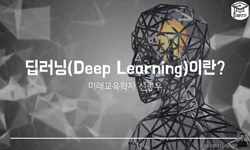Purpose: Current social and technical issues related AI Ethics take many different forms. Therefore, efforts to make ethical guidelines to cope with these issues are actively being developed. However, most kinds of ethical guidelines present general e...
http://chineseinput.net/에서 pinyin(병음)방식으로 중국어를 변환할 수 있습니다.
변환된 중국어를 복사하여 사용하시면 됩니다.
- 中文 을 입력하시려면 zhongwen을 입력하시고 space를누르시면됩니다.
- 北京 을 입력하시려면 beijing을 입력하시고 space를 누르시면 됩니다.
부가정보
다국어 초록 (Multilingual Abstract)
Method: At first, most representative cases of AI ethics-related guidelines would be investigated in domestic and international level, with collecting documents and literature review. After that, examine the commonalities and differences between cases as these basic data through comparative research methods. Accordingly, it would be revealed that each case is constituted by a deductive method. Finally, as an alternative to these methods, presenting the merits of establishing ethical principles related to AI through inductive cases and specific examples.
Results: Most of the representative AI Code of Ethics that currently exist have the form of suggesting principles and then solving ethical problems by applying the principles to the actual events accordingly. This type of approach corresponds to the method of ethics which based on moral principles. However, complex and unpre-dictable problems are likely to arise when it comes to AI ethics. In order to solve these problems, it is necessary to extract the principles of the AI Code of Ethics by establishing and presenting ethical principles through researching and analyzing various individual events related to AI Ethics using deep learning and Big Data Based AI.
Conclusion: The following effects can be achieved by using deep learning techniques and Big Data Based AI that contains Ethical Issues together with sound and desirable Moral Judgement on each case, to derive the principles of the AI code of ethics. First, it is possible to extract and secure Big Data as basic resource of presenting Ethical Directions on various ethical problems arising in connection with the development of AI technology. Second, since the Ethical Principles as AI Code of Ethics are established based on empirical data, the validity of the principles can be secured. On the other hand, the AI Code of Ethics derived through deep learning based on such Big Data is likely to result in multiple tyranny or errors of majority due to certain limitations. So evaluation, verification and correction by Human Ethics Experts are essential to prevent these kinds of fault.
Purpose: Current social and technical issues related AI Ethics take many different forms. Therefore, efforts to make ethical guidelines to cope with these issues are actively being developed. However, most kinds of ethical guidelines present general ethical principles and take a deductive method of solving individual problems in ac-cordance. The purpose of this study is to propose creating ethical guidelines through an inductive method of deriving ethical principles based on ethical judgements on each individual AI-related cases.
Method: At first, most representative cases of AI ethics-related guidelines would be investigated in domestic and international level, with collecting documents and literature review. After that, examine the commonalities and differences between cases as these basic data through comparative research methods. Accordingly, it would be revealed that each case is constituted by a deductive method. Finally, as an alternative to these methods, presenting the merits of establishing ethical principles related to AI through inductive cases and specific examples.
Results: Most of the representative AI Code of Ethics that currently exist have the form of suggesting principles and then solving ethical problems by applying the principles to the actual events accordingly. This type of approach corresponds to the method of ethics which based on moral principles. However, complex and unpre-dictable problems are likely to arise when it comes to AI ethics. In order to solve these problems, it is necessary to extract the principles of the AI Code of Ethics by establishing and presenting ethical principles through researching and analyzing various individual events related to AI Ethics using deep learning and Big Data Based AI.
Conclusion: The following effects can be achieved by using deep learning techniques and Big Data Based AI that contains Ethical Issues together with sound and desirable Moral Judgement on each case, to derive the principles of the AI code of ethics. First, it is possible to extract and secure Big Data as basic resource of presenting Ethical Directions on various ethical problems arising in connection with the development of AI technology. Second, since the Ethical Principles as AI Code of Ethics are established based on empirical data, the validity of the principles can be secured. On the other hand, the AI Code of Ethics derived through deep learning based on such Big Data is likely to result in multiple tyranny or errors of majority due to certain limitations. So evaluation, verification and correction by Human Ethics Experts are essential to prevent these kinds of fault.
참고문헌 (Reference)
1 박균열, "Virtue for Post COVID-19 and AI Technology" J-INSTITUTE 5 (5): 8-18, 2020
2 서은숙, "The Super-Aged Multiculturalism in South Korea and the Necessity of Wearable AI Ethics" J-INSTITUTE 5 (5): 34-41, 2020
3 Jobin A, "The Global Landscape of AI Ethics Guidelines" 1 (1): 389-399, 2019
4 이재범, "Suggestions for Using AI in Preparation for a Super-Aging Society" J-INSTITUTE 5 (5): 57-64, 2020
5 Yoongyeong Kim, "Rubrics and Schoolwide Approach to the Character Education and Some Implications to AI-Based Character Education" J-INSTITUTE 5 (5): 19-26, 2020
6 Schuklenk U, "On the Ethics of AI Ethics" 34 (34): 146-147, 2020
7 Jeongbin Choi, "Instructor Competency for Innovative Teaching Methods in the UNTACT Era" J-INSTITUTE 5 (5): 50-56, 2020
8 Etzioni A, "Incorporating Ethics into Artificial Intelligence" 21 (21): 403-418, 2017
9 Yeojin Lim, "Implications of Emotional Coaching and Integrated Art Therapy Teaching Method on Leadership Education in the AI Era" J-INSTITUTE 5 (5): 42-49, 2020
10 Kim Tae-woong, "IR4.0 and Ethical Tasks of AI" J-INSTITUTE 4 (4): 6-13, 2019
1 박균열, "Virtue for Post COVID-19 and AI Technology" J-INSTITUTE 5 (5): 8-18, 2020
2 서은숙, "The Super-Aged Multiculturalism in South Korea and the Necessity of Wearable AI Ethics" J-INSTITUTE 5 (5): 34-41, 2020
3 Jobin A, "The Global Landscape of AI Ethics Guidelines" 1 (1): 389-399, 2019
4 이재범, "Suggestions for Using AI in Preparation for a Super-Aging Society" J-INSTITUTE 5 (5): 57-64, 2020
5 Yoongyeong Kim, "Rubrics and Schoolwide Approach to the Character Education and Some Implications to AI-Based Character Education" J-INSTITUTE 5 (5): 19-26, 2020
6 Schuklenk U, "On the Ethics of AI Ethics" 34 (34): 146-147, 2020
7 Jeongbin Choi, "Instructor Competency for Innovative Teaching Methods in the UNTACT Era" J-INSTITUTE 5 (5): 50-56, 2020
8 Etzioni A, "Incorporating Ethics into Artificial Intelligence" 21 (21): 403-418, 2017
9 Yeojin Lim, "Implications of Emotional Coaching and Integrated Art Therapy Teaching Method on Leadership Education in the AI Era" J-INSTITUTE 5 (5): 42-49, 2020
10 Kim Tae-woong, "IR4.0 and Ethical Tasks of AI" J-INSTITUTE 4 (4): 6-13, 2019
11 Piano SL, "Ethical Principles in Machine Learning and Artificial Intelligence: Cases from the Field and Possible Ways Forward" 7 (7): 1-7, 2020
12 Hyunsoo Kim, "Ethical Issues on AI Equipped Combat ROBOTS" J-INSTITUTE 5 (5): 1-7, 2020
13 Puaschunder JM, "Big Data Ethics" 1 (1): 55-75, 2019
14 Orr W, "Attributions of Ethical Responsibility by Artificial Intelligence Practitioners" 23 (23): 719-735, 2020
15 Gamez P, "Artificial Virtue: The Machine Question and Perceptions of Moral Character in Artificial Moral Agents" 35 (35): 795-809, 2020
16 Siau K, "Artificial Intelligence(AI) Ethics: Ethics of AI and Ethical AI" 32 (32): 74-87, 2020
17 Kim Hyun-soo, "AI-Based Migrant Crisis Management" J-INSTITUTE 5 (5): 1-7, 2020
18 Yi Li, "AI Ethics and Privacy Right" J-INSTITUTE 5 (5): 27-33, 2020
19 Garcia-Garcia A, "A Survey on Deep Learning Techniques for Image and Video Semantic Segmentation" 70 (70): 41-65, 2018
20 Otter DW, "A Survey of the Usages of Deep Learning for Natural Language Processing" 32 (32): 604-624, 2020
동일학술지(권/호) 다른 논문
-
Future Oriented SMART SOCIETY and Ethical Issues
- J-INSTITUTE
- 김태웅
- 2021
- KCI등재후보
-
AI-Based CYBERSECURITY: Benefits and Limitations
- J-INSTITUTE
- 이상수
- 2021
- KCI등재후보
-
- J-INSTITUTE
- Daeun Han
- 2021
- KCI등재후보
-
- J-INSTITUTE
- 최지나
- 2021
- KCI등재후보





 KCI
KCI







